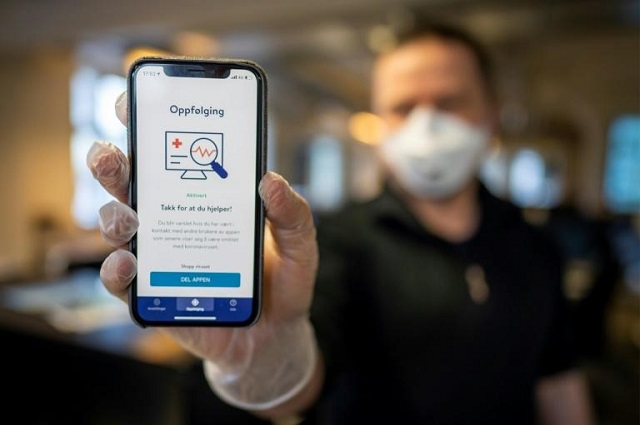
Virus apps expose tension between privacy and need for data
by The IndependentParis, France | AFP | As more governments turn to tracing apps in the fight against the coronavirus, a deep-rooted tension between the need for public health information and privacy rights has been thrust into the spotlight.
Track-and-trace technology is being touted as a silver bullet that will allow economies to reopen and people to emerge from home confinement, with health authorities keeping tabs on the virus’s spread.
But many fear personal data gathered by governments or companies in the name of pandemic control will be abused for political or commercial gain, or outright oppression in authoritarian states.
“If we are not careful, the epidemic might mark an important watershed in the history of surveillance,” Israeli historian Yuval Noah Harari wrote in The Financial Times at the height of the coronavirus outbreak.
While fast-improving technology may be a welcome aid for public health officials caught off guard by the scale of the coronavirus crisis, the “downside is, of course, that this would give legitimacy to a terrifying new surveillance system”, Harari argued.
Many countries have already introduced smartphone apps to track people’s infection status and movements with the intent of alerting people who may have been in close contact with a carrier of the virus.
In some countries participation is voluntary, but in many it is not.
– Alert system failure –
Asian countries, first hit by the pandemic that has claimed more than 350,000 lives, also led the way with tracing apps, often on a non-voluntary basis.
China, where the outbreak was first detected, rolled out several apps using either geolocation via mobile networks or data compiled from train and airline travel or motorway checkpoints.
Their use was systematic and compulsory and credited with playing a key role in allowing Beijing to lift its lockdown and halt the contagion.
South Korea issued mass mobile phone alerts announcing locations visited by infected patients and ordered anyone placed in quarantine to install a tracking app.
In Thailand, which has delayed passing a law on protecting personal data, people use an app to scan a barcode when they enter or leave a shop or restaurant — if someone who later tests positive goes to the same place, everyone else will receive an alert and a free coronavirus test.
The only problem: the government, having already gathered vast amounts of information on millions of app users, has had to concede that the alert function does not work.
“The COVID-19 pandemic has offered a convenient rationale for Asian governments seeking to enhance or sustain their authoritarian capacities to do so for a lengthy period,” Paul Chambers, a political scientist at the University of Naresuan in Thailand, told AFP.
– Voluntary versus mandatory –
Similar debates are raging in the West.
More than half of 2,000 people surveyed by the Brookings Institution in the United States feared contact-tracing apps would violate their privacy.
“Our analysis points to the need for public education campaigns that clarify what the tools are and, especially, what they are not doing,” the think-tank said of its survey, carried out between April 30 and May 1.
Public trust is important given that experts say a track-and-trace app must be used by at least 60 percent of any population to be effective.
“Are new technologies becoming more efficient? Certainly. Is it dangerous? Certainly, also,” said Benjamin Queyriaux, an epidemiologist and former medical adviser to NATO.
The European Commission has said data harvested through contact-tracing apps must be encrypted and cannot be stored in a centralised database.
In France, which has spurned tracing technology offered by Google and Apple, the CNIL privacy watchdog has approved a government-backed app that will be voluntary to download.
Experts in Norway have warned that its government-backed app does not sufficiently protect privacy, and an Australian app that allows people’s data to be accessed by health officials has also raised privacy concerns.
– Aims ‘not clear’ –
In Latin America, a woman won a legal case arguing that her privacy rights would be violated by an app launched by the Colombian city of Medellin.
The app is compulsory for employees of companies resuming activity after lockdown, but the court ruled that only the most relevant information may be required from users.
“The aims of these technological solutions are not clear,” said Colombian rights body Karisma.
In Argentina, the government is seeking to enforce the use of a hitherto voluntary tracing app in a move rejected by the opposition, which also demands all data be erased when the health crisis is over.
“If corporations and governments start harvesting our biometric data en masse, they can get to know us far better than we know ourselves,” Harari warned.
This will allow them to “not just predict our feelings but also manipulate our feelings and sell us anything they want — be it a product or a politician”.
Share on: WhatsApp